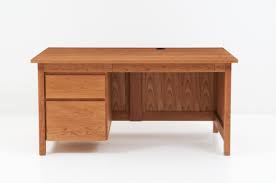记忆方法
将“desk”与“de”结合记忆,想象自己站在“de”(地)面上,摆放着一“sk”(像小桌子一样的)物体,这样就形象地记住了“desk”这个单词,意味着书桌或办公桌。
以上内容由AI生成, 仅供参考和借鉴
中文词源
desk 书桌
词源同disk, 圆盘。引申词义圆桌,书桌。
英语词源
- desk
-
desk: [14] Desk, disc, dish, and dais – strange bedfellows semantically – form a little gang of words going back ultimately, via Latin discus, to Greek dískos ‘quoit’. Desk seems perhaps the least likely descendant of ‘quoit’, but it came about like this: Latin discus was used metaphorically, on the basis of its circular shape, for a ‘tray’ or ‘platter, dish’; and when such a tray was set on legs, it became a table. (German tisch ‘table’ comes directly from Vulgar Latin in this sense.) By the time English acquired it from medieval Latin it seems already to have developed the specialized meaning ‘table for writing or reading on’.
=> dais, disc, dish - desk (n.)
- mid-14c., from Medieval Latin desca "table to write on" (mid-13c.), from Latin discus "quoit, platter, dish," from Greek diskos (see disk (n.)). The Medieval Latin is perhaps via Italian desco. Used figuratively of office or clerical work since 1797; desk job is first attested 1965.
权威例句
- 1. He folded the papers and stuck them in his desk drawer.
- 他将文件叠起来,塞进自己的书桌抽屉里。
- 2. They will need a reasonable amount of desk area and good light.
- 他们将需要一个面积较大的摆放办公桌的地方和充足的照明。
- 3. He gave the girl at the desk the message.
- 他把便条递给了桌旁的女孩。
- 4. On his desk is a mass of books and papers.
- 他的书桌上有大堆的书籍和文件。
- 5. He had gone to the reception desk, presumably to check out.
- 他已经去前台了,可能是要办理退房手续。

